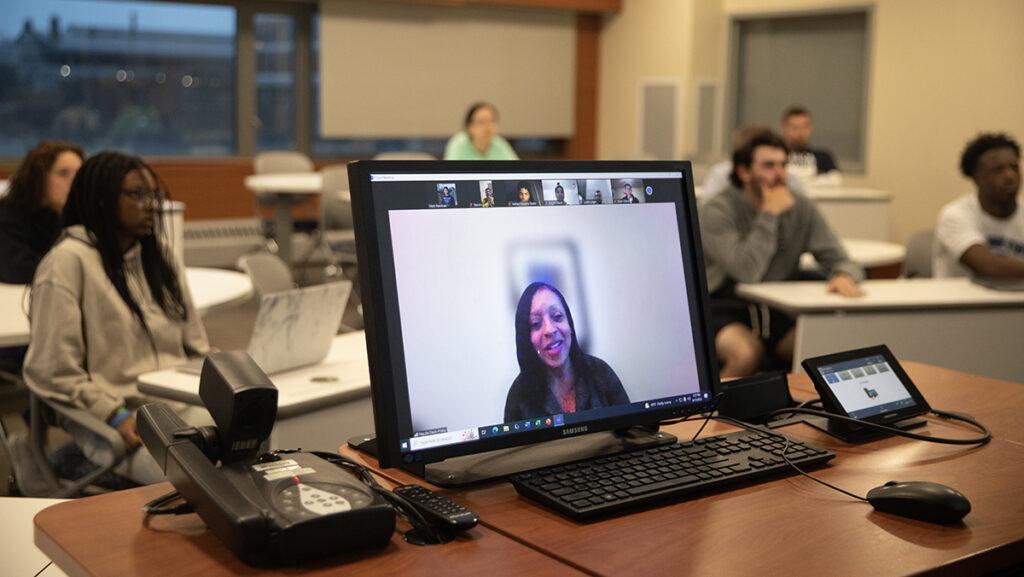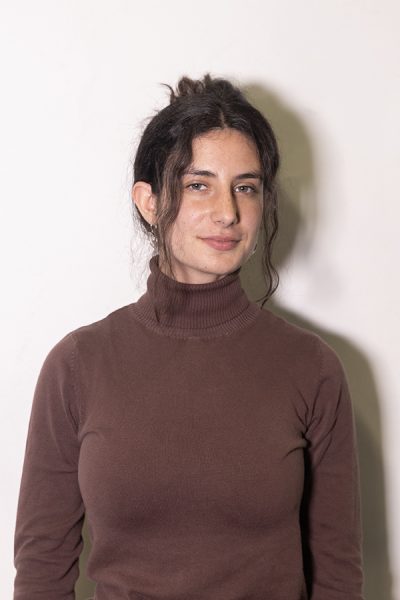The Ithaca College National Association of Black Accountants and Beta Alpha Psi, an accounting, finance and business honor society, invited Paquita Davis-Friday, interim dean of the Zicklin School of Business at CUNY Baruch College and professor in the Stan Ross Department of Accountancy, to speak at their meeting.
Davis-Friday discussed diversity, equity and inclusion in the workplace. Her subject of expertise is accounting with a focus on executive compensations and pensions.
Davis-Friday started by talking about the DEI projects she is currently working on with Baruch College. As an accountant, she said she is not a DEI expert but was asked to join the Zicklin DEI task force from its conception in summer 2020.
Davis-Friday said that when she looked at the demographics data for Baruch, it did not reflect the diversity of the Gramercy neighborhood in Manhattan where the college is located. Because Baruch is a CUNY school, she said the college should reflect its geographic area’s diversity.
“Before we can go out and talk to our employers and our other stakeholders about their DEI efforts, we needed to do some work on our own, and so we wanted to figure out what was happening with regard to the students,” Davis-Friday said. “What we found out from [a climate survey] is that we had a reputation for being competitive and not very welcoming.”
Davis-Friday said this led to the DEI task force’s first actionable step: partnering with another CUNY school, Borough of Manhattan Community College, which is Baruch’s largest feeder community college. She said this partnership specifically focused on Baruch’s business school because most BMCC students were transferring for business.
“We wanted to break down the barriers that [BMCC students] were facing in that transfer process,” Davis-Friday said. “We decided to form an alliance with our counterparts at the community college to align those pre-business courses so that when students transferred with their associate’s degrees, they wouldn’t have excess credits to take, they wouldn’t have to complete an application and, as long as they achieved a certain GPA, they will be automatically admitted to the Zicklin School of Business.”
Davis-Friday said the first class of pre-business students at BMCC enrolled in Fall 2021, and four of those students graduated early with their associate’s degrees and are now enrolled at Baruch. She said her college has now formed similar partnerships with LaGuardia Community College and Queensborough Community College.
“We’re going around the boroughs to try to make sure that we represent the population that we serve, and that’s our goal,” Davis-Friday said. “Sometimes when people talk about DEI, they think about numbers and quotas, and in the end, I think it’s really important to set goals that reflect who you are and what your mission is. We are the City University of New York … so we should reflect the city of New York.”
Davis-Friday then transitioned into talking about graduate students specifically in the business school. She said the business school has close to 50% female enrollment, while Master in Business Administration programs tend to be predominantly male.
“We feel like we’re doing a good job, but we’re continuing to look at the data and revisit it to make sure that we’re reflecting the population that we serve,” Davis-Friday said.
Davis-Friday said Baruch requires work experience for enrollment in its MBA program, which could pose barriers to prospective students applying. She said it is beneficial to require work experience, citing rankings like U.S. News and World Report’s rankings for top business schools, which take into consideration how employers feel about students who come from each college, how soon students are employed after graduation and how much students make after graduation.
“It turns out that one of the biggest predictors of salary after MBA graduation is salary coming in,” Davis-Friday said. “So if you didn’t work or if you worked in a somewhat menial job, you’re not going to be paid as much when you graduate. That’s not good for you as a graduate [and] it’s not good for me as a dean worried about rankings. … The more you have under your belt, going into an MBA program, the more valued you are by potential employers when you come out the other side.”
“Were there any challenges, expected or unexpected, that you faced?” senior Angelica Otero asked Davis-Friday about her DEI work.
Davis-Friday said DEI efforts are not always easy and that she has faced many challenges. She said sometimes other community colleges, besides BMCC, can be difficult to partner with because their course syllabi do not align with Baruch’s. She said there is also a shock for community college students who are used to small class sizes when they get to Baruch’s business school of 15,000 students.
Another challenge is the difference between access to equity resources in community colleges and access in senior colleges, like Baruch. Grants — like CUNY ASAP, which provides free tuition and transportation for low-income students in community colleges — are not available for students in senior colleges.
“There’s a little bit of shock to the system of students who are on the lower socio-economic end of the scale, where they have all the support in community college and then they get to Baruch and they’re like, ‘Oh, wait a minute, textbooks are $650,’” Davis-Friday said. “So [the DEI task force] learned how to write grants, which is not something we were trained to do.”
Davis-Friday said that to help with the transfer shock, there are peer and faculty mentors at Baruch who can help students through the process. She said the business school also limited the requirements for application materials but kept the GPA requirement the same, which caused retaliation from alumni about Baruch lowering standards.
“If you’ve met the GPA standards and … you’ve got your associate’s, you just transfer,” Davis-Friday said. “There’s still this idea that when you hear DEI, that you’re talking about changing standards. We absolutely have not done that.”









